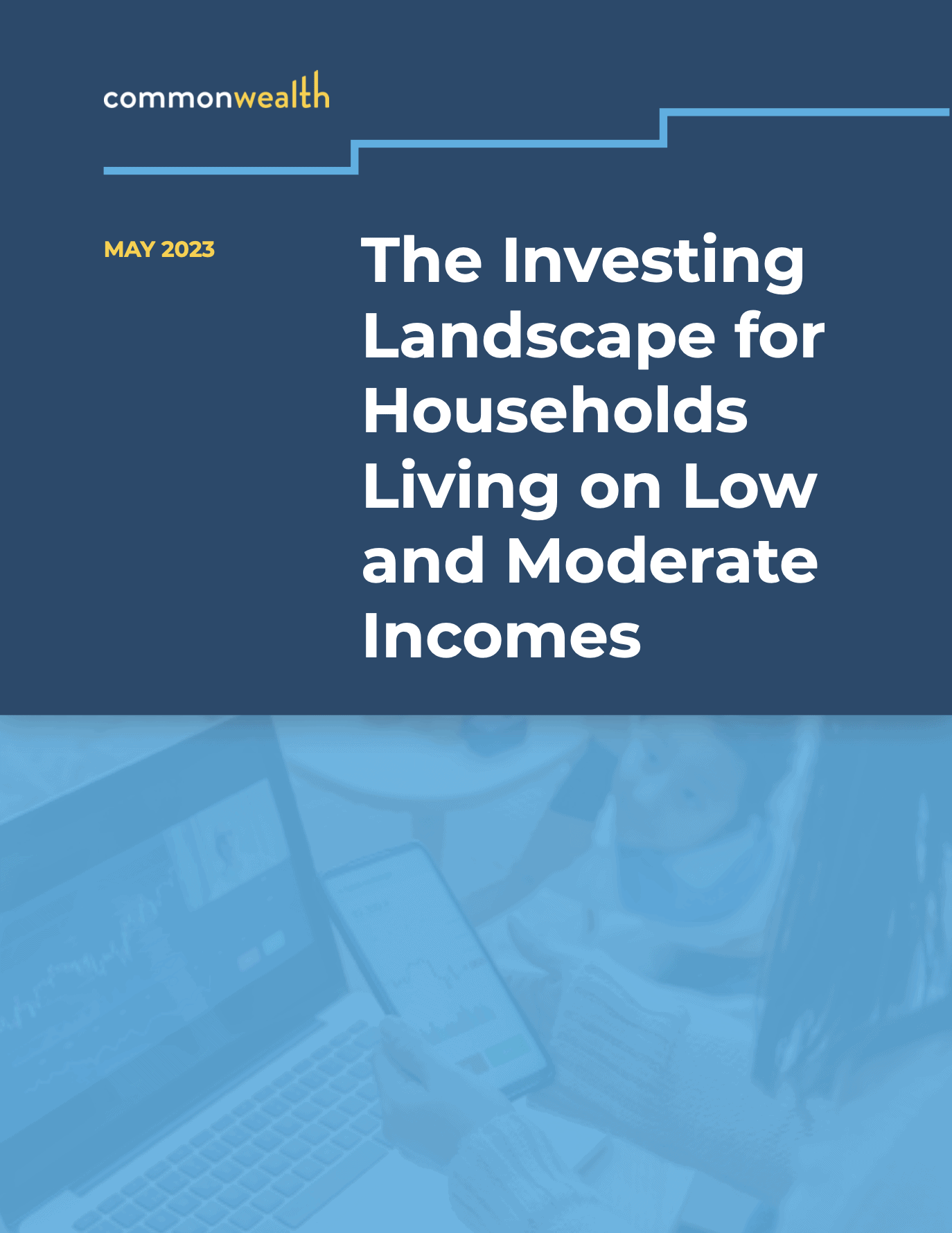There are many wealth-building financial opportunities available to individuals, including options such as work-based retirement to college savings programs to retail investing. Yet historically people of color, specifically Black and Latinx women, have faced many barriers related to resources, access, knowledge, and identity to access these opportunities. And while these barriers touch every aspect of investing, another broad issue emerges—where does one start amidst an overwhelming and fractured landscape?
With investing, there are thousands of funds, securities, and products to use with hundreds of points of entry and risk profiles. The sheer complexity can feel insurmountable for many investors, operating as yet another exclusionary measure contributing to the widening wealth gap and a lack of engagement.
Our report published in May 2023, The Investing Product Landscape for Households Living on Low and Moderate Incomes, provides a comprehensive review of the landscape available today for people to enter capital markets, along with survey findings from more than 2,000 households earning $30,000 to $80,000. The report details how the investing landscape is a complex and even overwhelming recipe of programs, platforms, and properties.
Our goal is to inform the investment industry, professionals, and asset managers so that they better understand the perspective and journey of the investor who is earning LMI.

Exploring Key Aspects of the Investing Landscape
By delving into key aspects of the investing ecosystem—and how they work together—the report explores how the wide range of investing programs, properties, and platforms today fit into the financial journeys of people living on LMI at various life stages.
Programs
- Defined Contribution Workplace Retirement Plans
- Health Savings Accounts
- Individual Retirement Accounts
- 529s
People
- People with household incomes between $30,000 and $80,000
Platforms
- Retail investing apps
- Traditional brokerages
Properties
- Stocks
- Bonds
- Mutual Funds and ETFs
- REITs
- Cryptocurrency
The ways in which these four aspects interact vary—there is no singular story about investing and indeed there are distinct trends for each program and platform based on factors such as income level among people earning between $30,000 to $80,000; race and ethnicity; and age.
For example, one notable distinction was how much variation existed around anticipated future retirement age based on respondents’ current age. In our data, the younger respondents were much more optimistic about when they would be able to retire, with more than 50% planning to retire before they turned 60. Planned retirement age increased significantly as respondents got older and likely developed more realistic expectations of their financial trajectory. These results indicate that the development of retirement expectations changes significantly over the lifecycle, and early expectations of retirement prospects may play a significant role in both investing and broader financial behaviors.
Demystifying the Investing Process
There is much to be done to include people earning LMI across all investment products and programs—and heighten awareness of different types of products and what’s appropriate to use and when. While some of the complexity highlighted above can be overcome through innovation and awareness, many challenges remain including identity, the actual journey of opening one’s first investment account, and “feeling” a part of the community of investors.
Employers and financial service providers may play a key role in making investing more inclusive by providing access to more integrated platforms that connect different investing pathways and helping people understand the role each can play at different stages of their financial journey.
A second report, to be published in August 2023, is focused on the journey and personas of investors earning LMI and highlights specific considerations for various personas to help asset managers understand and better serve all populations.
If you are interested in working with Commonwealth to continue building this body of impactful research focused on building a more inclusive investing ecosystem, please reach out to info@buildcommonwealth.org to learn more.
The Wells Fargo Foundation is a private foundation funded by Wells Fargo & Company. In the communities we serve, we focus our social impact on building a sustainable, inclusive future for all by supporting housing affordability, small business growth, financial health, and a low-carbon economy. News, insights, and perspectives from Wells Fargo are available at Wells Fargo Stories. Additional information may be found at www.wellsfargo.com | Twitter: @WellsFargo.
